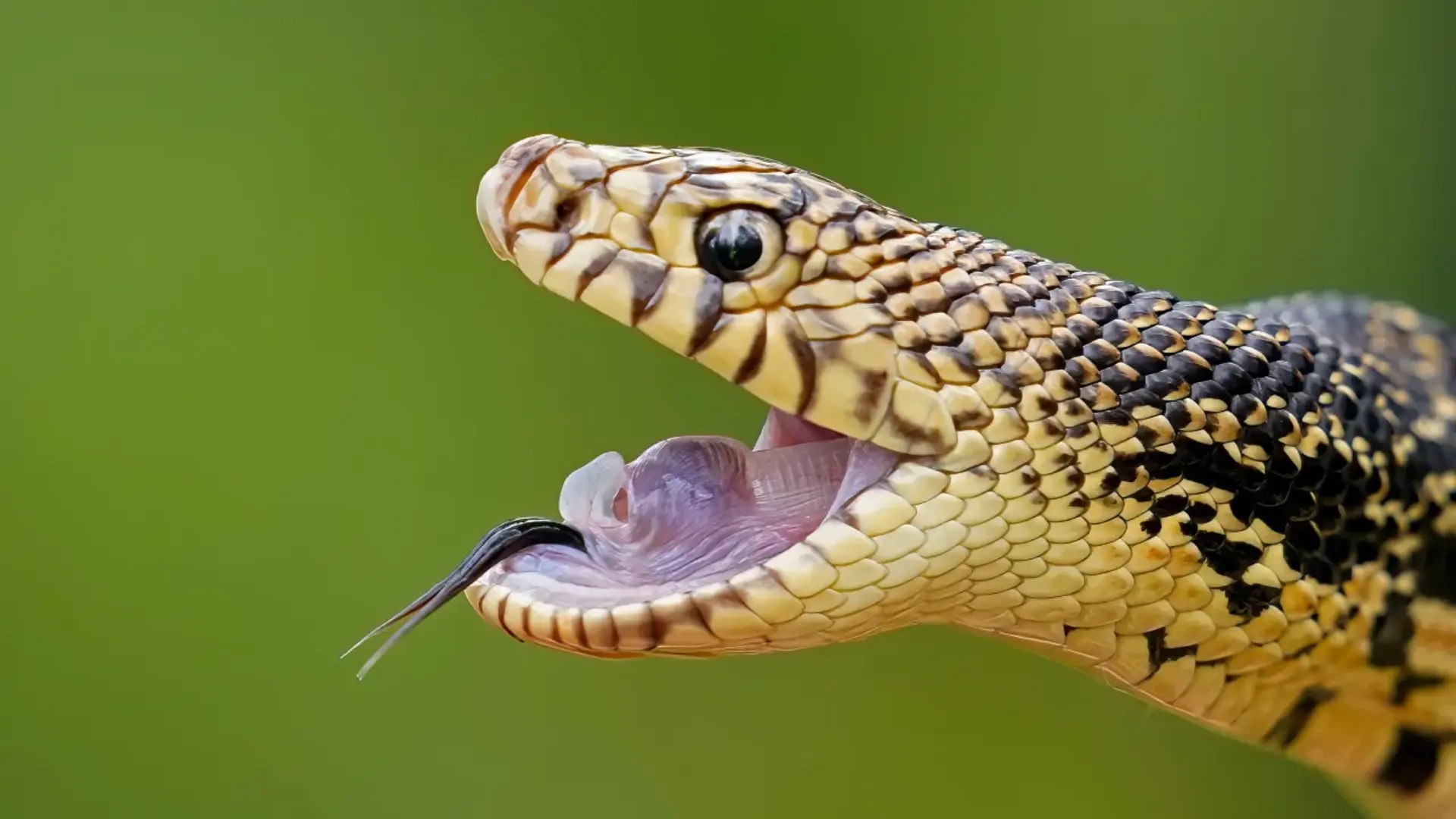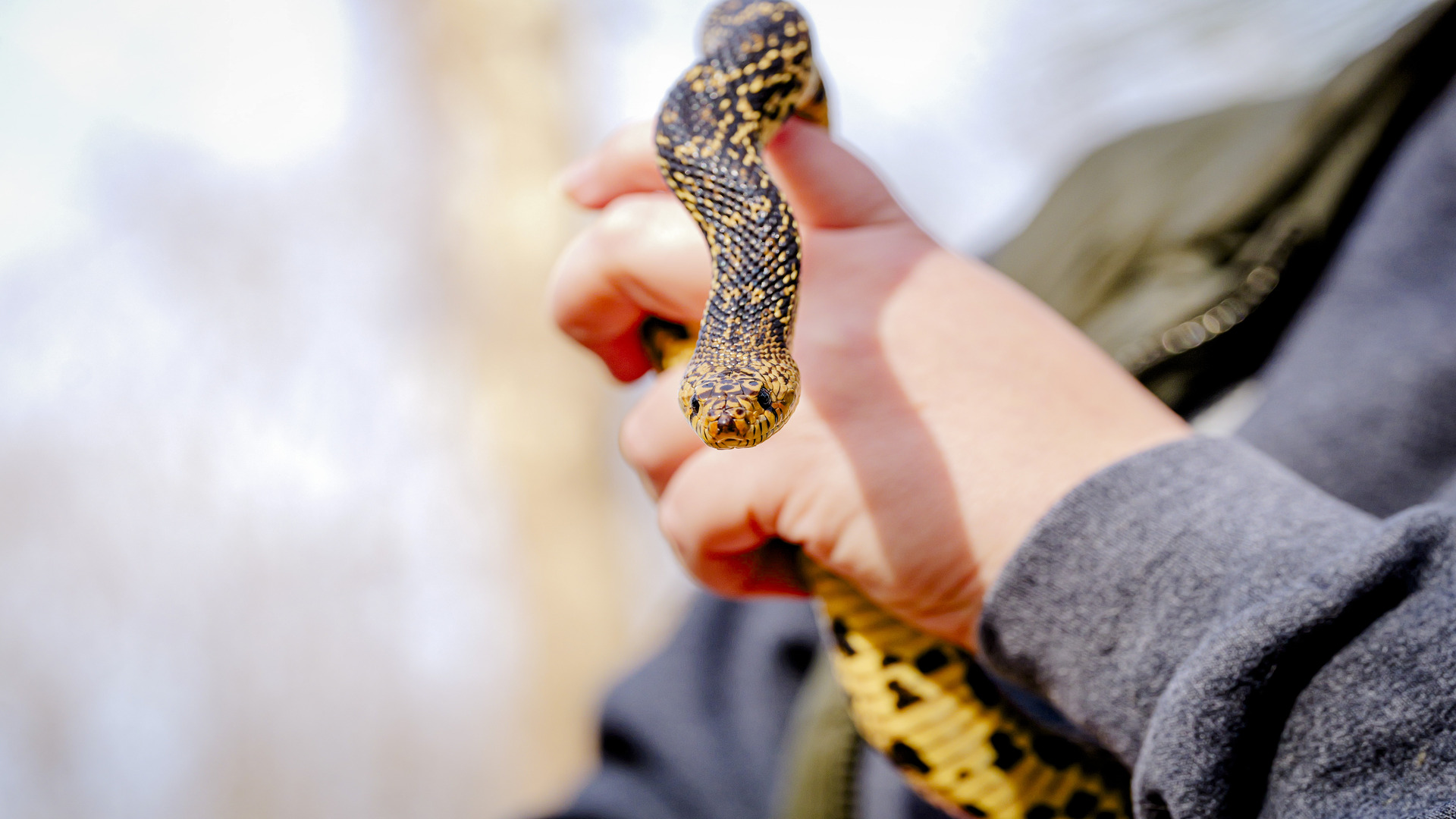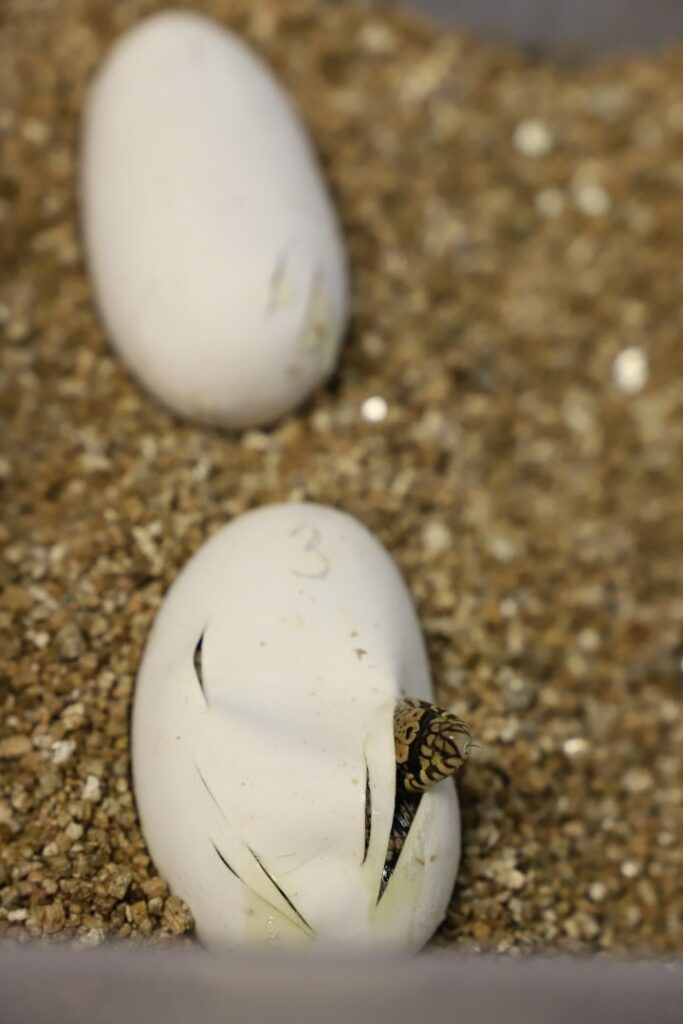The Memphis Zoo achieved a world-first feat in reptile conservation by hatching three Louisiana pine snakes, one of the rarest species in North America, from frozen sperm and artificial insemination. This groundbreaking moment demonstrates that revitalizing dwindling reptile populations is possible.
After five years of research and thirty years of experimenting with cutting-edge science, the Memphis Zoo’s unshakeable dedication to saving the Louisiana pinesnake paid off, validating the use of biobanking and assisted reproductive technologies (ART) in conservation efforts moving forward.
“This achievement brought us one step closer to routinely integrating assisted reproductive technology into reptile conservation to preserve genetics and save species,” Beth Roberts, senior reproductive scientist at Memphis Zoo, said in a statement.

Science bringing new pine snakes life into the world
The Memphis Zoo collected, froze, and thawed semen to artificially inseminate a female Louisiana pinesnake. But making a snake give birth isn’t that straightforward. A female can store sperm for a later date. Thus, she can choose when she gets pregnant, as IFL Science notes.
The team had to verify that the three snakes came from the host sperm that they had injected. Female snakes can even produce babies without a male in a miraculous process called parthenogenesis, or “virgin creation.” The Schwartz Lab at Auburn University, dedicated to using genetics in conservation and environmental efforts, confirmed that the donor sired the offspring.
“We see this success as a huge step forward to enable future efforts to improve the genetic health of this species and other threatened reptile species, Dr. Tonia Schwartz said, an Associate Professor in the Department of Biological Sciences at Auburn University.

Biobanking is bringing new hope to reviving endangered species
IFL Science reports that cryopreservation or biobanking is an emerging field of conservation brought about by recent technological advancements in reproduction science. Scientists preserve the ingredients necessary to make offspring, such as sperm, eggs, and even skin cells, to save endangered species.
This burgeoning science, however, has overlooked snakes, inviting scientists and zoologists to reflect on who they favor. “In a world where [mammoth-elephant hybrids] are considered a possibility, surely using artificial insemination to reproduce an endangered snake species would seem a no-brainer concept,” Mark O’Shea, professor of herpetology at the University of Wolverhampton in the U.K., told Newsweek.

The Memphis Zoo stands at the forefront of this science that meets conservation. “Memphis Zoo is setting an example for the global community,” said head researcher Mark Sandfoss in a statement.
With habitat loss threatening the species, cryopreserved semen offers new hope in ensuring their long-term survival and preserving endangered species worldwide.
“We’ve shown that it’s possible to use cryopreserved genetic material to aid in the recovery of an endangered species, paving the way for similar efforts with other reptile species in the future.”
“Today, the future of endangered reptiles got a little brighter,” Dr. Steve Reichling, Senior Reproductive Scientist at Memphis Zoo, concluded. “Memphis Zoo plans to continue its pioneering work in reptile conservation, leveraging this success to build on its research and collaborate with other institutions worldwide.”
NEWSLETTER
The Blueprint Daily
Stay up-to-date on engineering, tech, space, and science news with The Blueprint.
By clicking sign up, you confirm that you accept this site’s Terms of Use and Privacy Policy
ABOUT THE EDITOR
Maria Mocerino Originally from LA, Maria Mocerino has been published in Business Insider, The Irish Examiner, The Rogue Mag, Chacruna Institute for Psychedelic Plant Medicines, and now Interesting Engineering.
Source link : http://www.bing.com/news/apiclick.aspx?ref=FexRss&aid=&tid=66d6171958ee4662838f62893114fc0f&url=https%3A%2F%2Finterestingengineering.com%2Fscience%2Fworld-first-snakelets-born-from-frozen-semen&c=8128356182631666662&mkt=en-us
Author :
Publish date : 2024-09-02 02:10:00
Copyright for syndicated content belongs to the linked Source.
